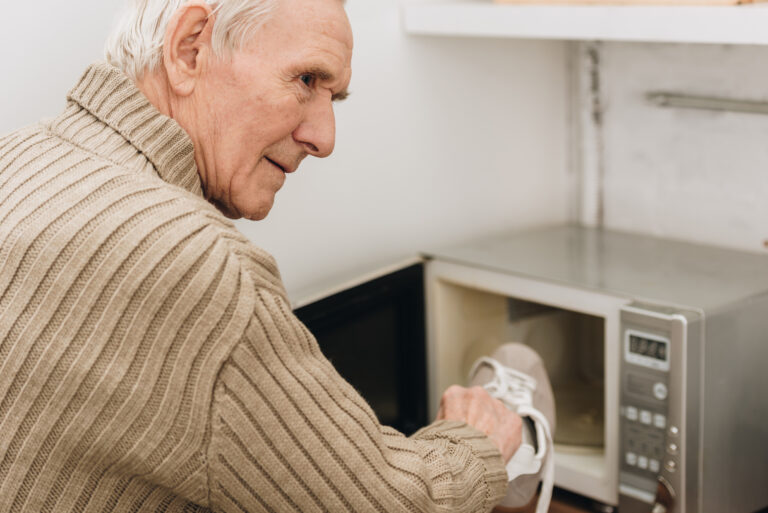Drinking coffee before running can be beneficial for many runners, but whether you *should* drink it depends on several factors including your tolerance to caffeine, timing, dosage, and your individual response. Coffee contains caffeine, a well-studied stimulant that can enhance physical and mental performance, but it also has potential side effects that need to be considered.
**How caffeine affects running performance**
Caffeine is known to stimulate the central nervous system by blocking adenosine receptors in the brain. Adenosine normally promotes relaxation and fatigue, so blocking its receptors reduces perceived effort and delays fatigue during exercise. This leads to improved endurance, increased alertness, and enhanced focus, which are all beneficial for running[4]. Studies have shown that consuming caffeine about 60 minutes before running can improve performance. For example, well-trained runners who ingested approximately 3 mg of caffeine per kilogram of body weight one hour before an 8K run improved their time by about 1.8%, or 24 seconds[3].
The benefits of caffeine include:
– Increased time to exhaustion, allowing you to run longer or harder before fatigue sets in[3].
– Improved mental alertness and concentration, which can help maintain pace and motivation during a run[3].
– Reduced perception of effort, making the run feel easier even at higher intensities[4].
**Recommended caffeine dosage and timing**
The typical effective dose for performance enhancement is around 2-3 mg of caffeine per kilogram of body weight. For a 70 kg (154 lb) runner, this translates to roughly 140-210 mg of caffeine, which is about the amount in one to two cups of coffee[4]. Taking caffeine about 30 to 90 minutes before running aligns with the time it takes for caffeine to reach peak plasma levels in the blood[2].
Higher doses (5-6 mg/kg or more) do not necessarily improve performance further and can increase side effects such as jitteriness, anxiety, and gastrointestinal discomfort[4]. Excessive caffeine intake can also lead to urine caffeine concentrations that violate doping regulations in some sports[2].
**Potential downsides and individual variability**
While caffeine can boost performance, it can also disrupt sleep if consumed too late in the day. Evening or late afternoon caffeine intake has been shown to reduce sleep efficiency and cause subjective sleep disturbances, which can impair recovery and subsequent performance[1]. This is especially important for athletes who train or compete in the evening or have compressed recovery windows.
Individual responses to caffeine vary widely due to genetic, hormonal, and metabolic differences. Some people metabolize caffeine quickly and experience minimal side effects, while others are more sensitive and may feel anxious, jittery, or have gastrointestinal issues even at low doses[1][4]. Therefore, it is advisable to test caffeine use during training rather than on race day to understand your personal tolerance.
**Other considerations**
– Habitual caffeine consumers may develop some tolerance, reducing the ergogenic effects, but moderate intake still tends to provide benefits[3].
– Caffeine combined with other substances like taurine (found in energy drinks) may have synergistic or antagonistic effects, but more research is needed to clarify these interactions[5].
– Caffeine is legal and widely accepted in sports, but athletes should be aware of the rules regarding caffeine limits in their specific sport[2].
**Practical advice**
If you are considering drinking coffee before running:
– Start with a moderate dose (about 1 cup of coffee or 150 mg caffeine) about 45-60 minutes before your run.
– Monitor how you feel during and after the run, noting any side effects like stomach upset or increased heart rate.
– Avoid caffeine late in the day to prevent sleep disturbances that could impair recovery[1].
– Adjust the dose based on your body weight and tolerance.
– Use caffeine strategically for important workouts or races rather than daily to maximize benefits.
In summary, drinking coffee before running can enhance performance by improving endurance, focus, and reducing perceived effort, but it should be used thoughtfully considering timing, dosage, and individual sensitivity. Testing caffeine use during training is the best way to determine if it is right for you.
—
**Sources:**
[1] https://pmc.ncbi.nlm.nih.gov/articles/PMC12473705/
[2] https://exploratiojournal.com/caffeine-use-water-polo-exploring-the-use-of-caffeine-on-athlete-performance/
[3] https://www.runnersworld.com/uk/nutrition/a66038552/benefits-of-caffeine/
[4] https://www.triathlete.com/nutrition/how-much-caffeine-for-training-racing/
[5] https://pmc.ncbi.nlm.nih.gov/articles/PMC12490369/





